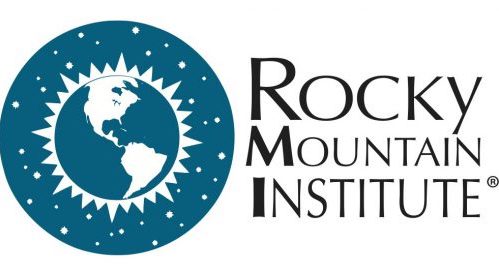As many of you know, the Rocky Mountain Institute (RMI) is one of my favorite nonprofit groups. For decades, RMI has been tirelessly working on rearranging our relationship with energy. Few organizations have such big impact with so few resources. One of the beautiful tenets of RMI is that small changes can lead to dramatic improvements in environmental well-being.
I covered RMI in a blog post years ago (see – Carl Kruse RMI profile) and thought it time to say hello again to an old friend.

Deanna Balestra guest writes this blog post.
Carl Kruse
https://carlkruse.org
Introduction
At this point, sustainable and green aren’t just buzz words, but a mandate to follow if we wish humanity to thrive on Earth. There are many green consultancies, but few with the pedigree of Rocky Mountain Institute.
While sustainability and environmental safeguards are often seen as costly restrictions by corporations and others, many large firms have turned to the Rocky Mountain Institute for collaboration and help. That’s because RMI takes a “Natural Capitalism” approach to what they do. Natural Capitalism means that all solutions and suggestions have to meet the standards of being both environmentally friendly and financially healthy at the same time. Basically, the belief that the only way everyone will adapt to green living is if we also make it more cost-effective and economically viable at the same time.
In essence, the RMI is a think tank for solving ecological problems. They have provided research, publications, consulting, and lecturing since 1982, developing and promoting earth-friendly practices and technology that benefits the bottom line by improving efficiency.
The Begining Of The Rocky Mountain Institute
The founder of the RMI is Amory Lovins. A physics major from Harvard and Oxford, this champion among science-geeks first became interested in energy conservation during the great gas shortages of the 1970s. He wrote a paper that posed the question, why did the United States need so much oil and gas in the first place, and wouldn’t it be better to find alternative energy sources? What started as a scholarly paper, soon caught the attention of President Jimmy Carter, and Amory and his wife started to consult with government entities and corporations.
The Rocky Mountain Institute was officially launched in 1982. They pushed a “soft energy path” that uses less energy by being more efficient and also using alternative energy sources like wind, water, and solar power. The RMI is headquartered in Basalt, Colorado but also has offices in Boulder, New York, Washington D. C., and Beijing.
The Nine Core Principles Of RMI
The Rocky Mountain Institute is a 501(c)(3) nonprofit organization, with 229 full-time staff and an annual budget of $56 million. They pursue change through research, consulting, and problem-solving using nine core principles.
- Advanced Resource Productivity
- Systems Thinking
- Positive Action
- Market-orientated Solutions
- End-use (least cost) Approach
- Biological Insight
- Corporate Transformation
- Pursuit Of Interconnections
- Natural Capitalism
Running An Energy Efficient HQ
The Basalt Headquarters is a modern example of efficiency, proving that RMI not only believes in a healthy ecological future, but practices what they preach. The original HQ was built as a bioshelter and home called the Snowmass building. Most of the employees actually work in other buildings, but the Snowmass building has been featured in many articles and documentary programs. The insulated building uses passive solar heat, has a greenhouse, and uses two wood stoves for emergency heat if needed. All of the appliances are energy efficient and are easily able to run using solar energy. The 900 square-foot greenhouse also collects energy through photosynthesis, heat, and lights. They do grow actual fruit and vegetables in the greenhouse as well. You can take a tour of the building if you’re ever in the area.
The Three Consulting Service Groups Within RMI
Rocky Mountain works with governments, corporations, communities, and even individuals. Anyone that wants to combine eco-friendly practices with gaining a competitive or financial advantage is their kind of person. As consulting is one of their main areas of emphasis, they have separated it into three niche branches.
The Built Environment Team: Collaborating with architects, designers, and engineers, the Built Environment Team works to transform the way we build structures. They seek to have environmental sustainability and an aesthetically pleasing building all in one. You’ll see their work at Starbucks and the University of Denver, to name a couple of places.
The Energy and Resources Team: This team works to not only conserve energy but also to produce it, buy it, and sell it. There are many ways industries can stay ahead of the game with energy efficiency.
The Mobility and Vehicle Efficiency Team: The third and final branch aims to improve transportation practices by reducing carbon emissions and the use of oil. Did you know that70% of U.S. oil consumption goes to transportation?
Major RMI Projects You Might Not Have Heard About
The Hypercar is a hybrid concept vehicle that RMI started working on years before hybrid cars were “a thing.” Started in 1998, this hybrid-electric car was a whole-system approach. It’s not only fuel-efficient but uses completely new materials that are lightweight and aerodynamic, made from recycled materials when possible. Work continues on this model car today.
In 2006, Wal-Mart, contacted the Rocky Mountain Institute to help them gain a competitive advance with fuel-efficiency. Through various changes to their transportation system, they estimate that they will be saving $494 million a year.
The China Program seeks to help China reduce its carbon emissions by 60% by 2030. The RMI is working directly with the Chinese government because they are the world’s leading coal consumer and carbon dioxide emitter. They have already completed a detailed report, Reinventing Fire, that gives a roadmap to how China can generate 6-fold economic growth while reducing its carbon emissions and creating a safer environment for the world. This led to a handbook that will help local Chinese communities put these plans into action.
The Rocky Mountain Institute is involved in many programs around the world to create an environmentally and economically place for us all to live and grow.
Learn more about RMI at https://rmi.org/
Another great charity I love is Streetwaves.

A great organization. Go Rocky Mountain Institute!
Isn’t RMI great?